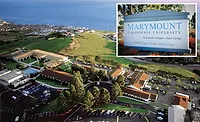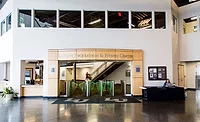Eileen Behr: Serving University Students

Beginning her career as a municipal police department dispatcher, Eileen Behr worked her way through various divisions and assignments over the course of 32 years – including accident and traffic, tactical negotiator, juvenile, investigations and emergency management coordinator – to eventually become the first female police chief in Montgomery County, Pennsylvania. After the sudden death of the Montgomery County sheriff in 2011, Behr was appointed sheriff.
Now, as the Vice President and Chief of Police of the Drexel University Department of Public Safety, located in Philadelphia, Behr credits her varied experience in law enforcement and emergency management with leading to her current role. “Coming from a small municipal department that relied on mutual aid and partnership, together with emergency management, set the foundation for my present position,” she says. “Preparation and prevention for critical incidents and disasters is as vital and crucial as prevention and fighting crime.”
In her role, Behr oversees both the police department and the operations department, which includes more than 650 cameras, electronic access systems for every building and emergency management. Externally, she partners with local law enforcement agencies such as the Philadelphia Police Department, the FBI, the University of Pennsylvania Police Department and Amtrak police. “We have a lot of critical partnerships, so it’s important that we work and train with these partners,” Behr says. “We run tabletop exercises, and we try to do cross-training so we can get to know each other and the resources that we each have.”
The best part of Behr’s job is interacting with the students, student organizations and the surrounding community, which includes an elementary school. “Drexel is a vibrant, urban campus with young, energetic students. It’s inspiring to experience the growth and metamorphosis of young students from their first year to senior year and graduation,” says Behr. Her department is big on outreach, working with student life organizations and student government and putting on events like 'Cops and Coffee' and 'Police and Pizza.' “We want them to get to know us when it’s not an emergency, so we can build trust and let them know we’re here to serve them.”
Like many security professionals, getting people to take the time to learn is always a challenge. “A couple years ago, we developed a community outreach program that talks about emergency preparedness, de-escalation, how to respond to active threats and situational awareness, not just on the campus, but in everyday life,” Behr says. “The program has been very popular, but it’s a challenge to persuade the community to make the time to listen and learn until there’s an incident.”
Managing the continually changing university population is another difficult part of the job. “With one quarter of the population changing every fall, each year we have to build trust with a new class,” says Behr. “In today’s society that mistrusts – and seems to dislike – police, we have to develop that trust and teach our new students that a majority of our police duties include services like responding to medical calls, education, missing person reports, suicides and providing support to victims of crimes.”
Knowing that Drexel has invested in its own police department has helped parents and students feel more comfortable. “They like knowing that there’s a unique set of fully-trained police officers here that are also geared toward service. We’re all trained in first aid and we carry AEDs (automated external defibrillator) in our cars to respond to any type of medical emergency here,” Behr says. “And we also do the outreach and community education specific to the university. I think it’s important that they know we’re here specifically for them, we’re not just another district in the city responding to a call.”
This perception by students and their parents also shows the value the police department brings to the university. “Our enrollment has been steady and not declining, which shows a market value there,” says Behr. “Parents look for that. When people tour the campus, they ask what kind of security there is. We have unarmed security officers, we have a police department that’s armed and trained, we have blue light phones and we have cameras across campus. We’re a valuable part of Drexel University.”
In her spare time, Behr enjoys spending time with family and friends and traveling, “especially the beach,” she says. She also likes to volunteer for organizations like the Student Veterans Association at Drexel University – “We’re a very large ROTC school, and we support the ROTC programs,” Behr says – and the Mission Kids Child Advocacy Center in Montgomery County, Pennsylvania, which she helped develop by being part of the original research and development board. “The project was started to help reduce the possibility of a child, who was a victim of abuse, having to testify in court,” says Behr. “They do the interview there with people who are specially trained.”
Looking for a reprint of this article?
From high-res PDFs to custom plaques, order your copy today!






